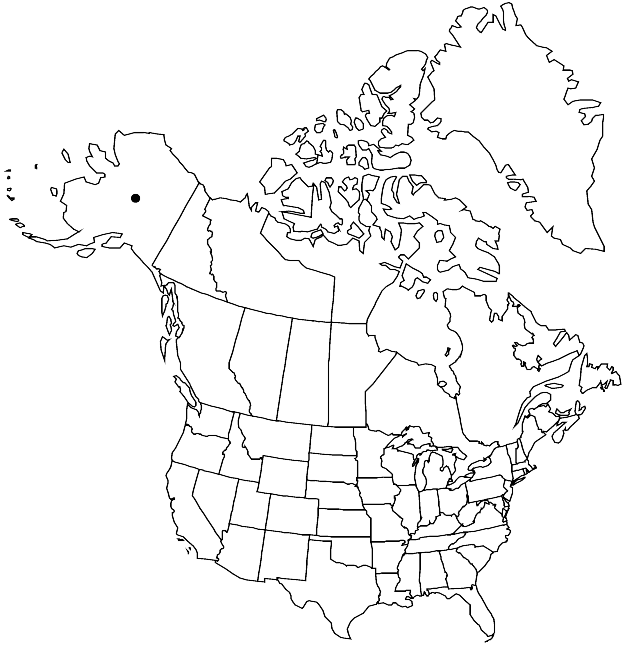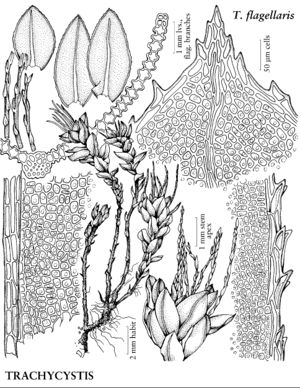Difference between revisions of "Trachycystis flagellaris"
Contr. Fl. Crypt. As., 241. 1873.
Illustrated
Basionym: Mnium flagellare Sullivant & Lesquereux Proc. Amer. Acad. Arts 4: 277. 1859
FNA>Volume Importer |
FNA>Volume Importer |
(No difference)
| |
Revision as of 22:02, 16 December 2019
Plants small, often loosely growing with other bryophytes. Leaves incurved upwards when dry and moist; costal abaxial teeth of 1 cell; medial laminal cells irregularly shaped, slightly smaller near margins. Capsule with exostome short, blunt.
Phenology: Capsules mature summer.
Habitat: Cliffs, humus, boulders, shaded habitats, forests, epiphyte on alder and birch
Elevation: low elevations
Distribution

Alaska, Europe, Asia.
Discussion
Because of their growth habit and doubly serrate leaf margins, plants of Trachycystis flagellaris resemble species of Mnium at first glance. However, they are readily distinguished by the mammillose laminal cells and, when present, flagelliform branches. This mode of asexual reproduction is also observed in Dicranum flagellare (Dicranaceae).
Selected References
None.
Lower Taxa
None.
